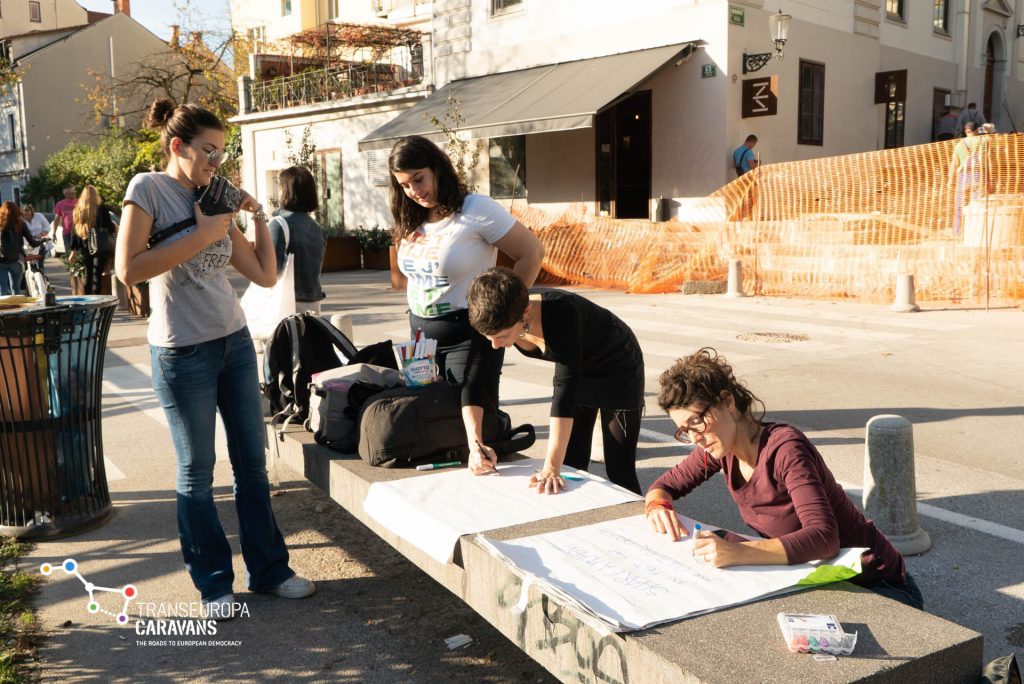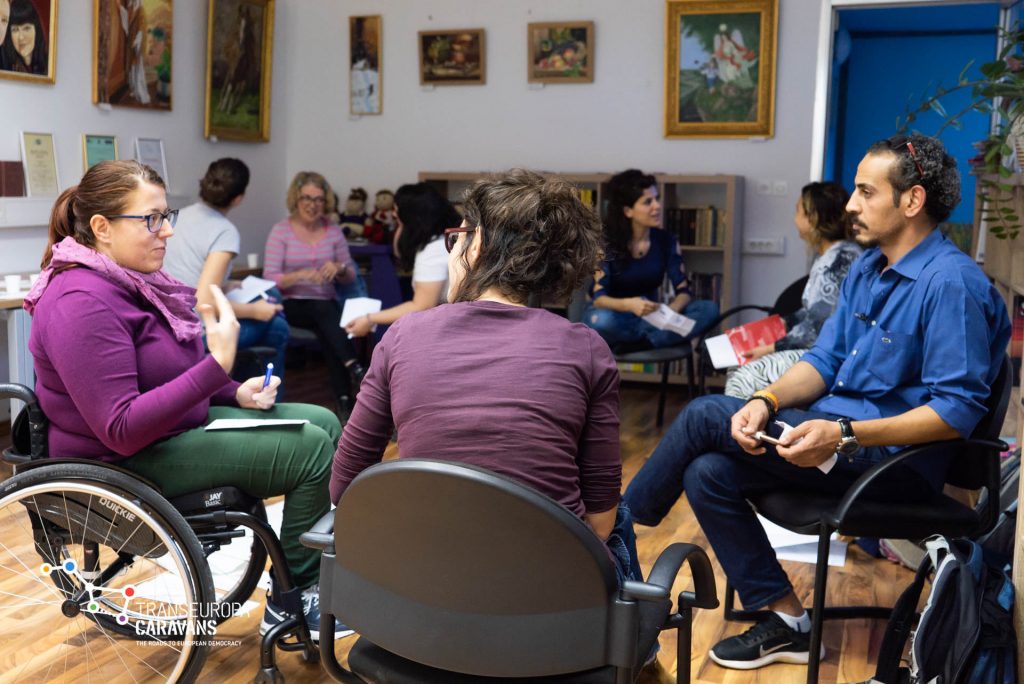In Ljubljana we had the pleasure to meet exponents from the Institute Apis, a private non-profit institute that aims at the production, education, innovation and collaboration tied to social engagement, memory preservation and human rights. We got in contact with their realities and deepened our knowledge about the Multivizija Project (a project developed by Apis Institute in collaboration with ODTIZ Institute, Rokavička Institute, Association Ključ, Povod Institute Association Ritmi planeta, Association of disabled students of Slovenia and Muscular dystrophy association of Slovenia). We had the chance to discover this unique example on how to engage in a meaningful way those groups that are defined as “vulnerable” or “at risk”.

As the organisers explained, the Multivizija Project is primarily designed to strengthen the employability of vulnerable groups in the field of art and culture and, by encouraging new learning of new skills, knowledge and competences in the field of audiovisual production, dance, and theatre, contribute to increase the social inclusion of the participants.
The project consists of a training that combines different art expressions: photography, video, audio, dance and theatre. 50 participants who have experienced being different – because of a different culture, an experience of migration or sensory or physical disability – will be engaged in this creative process of workshops, under the supervision of mentors and advisors in each module of the project. Additional support is given by assistants of mentors who also belong to vulnerable groups and are able to approach participants more easily.
One example of innovation we found in this project is the process of selection of the participants. They are in fact selected with a deep understanding of the intertwined relationships between different aspects of one’s identity and this intersectional framework has opened the path for a deeper dialogue and exchange between the participants, creating connections beyond the identity(ies) on the forefront.

Another feature of originality of this project is the type of activities that are offered: participants engage in different forms of artistic language, from theatre of the oppressed to photo-biography and dance therapy. Through these different languages, participants are challenged to be vulnerable in front of each other and express their stories, identifying similarities in the patterns of stigmatisation due to differences (culture, disability/handicap, immigration, refuge status) and the accompanying victimisation. They are then encouraged to explore options of how artistic forms can be used as a device for empowerment, a means of gaining new skills, an instrument of mobilisation, motivation and advancement of proactive operation.
The last feature we believe is important to underline about this project is indeed the focus on future employability of their participants: the trainings strive to enhance their concrete options of employability by strengthening their language proficiency in Slovenian and providing them with specific skills in the audio-visual, artistic, cultural production and management fields, as well as easing social integration and cooperation.
All this is carried out in an environment that can be perfectly expressed through the words of one of the operators we met who, quoting an old saying, stated “my neighbours before my house”: an attitude of building a positive environment, promoting the good relationships between people, helping each others’ out, instead of focusing on property and material goods.

